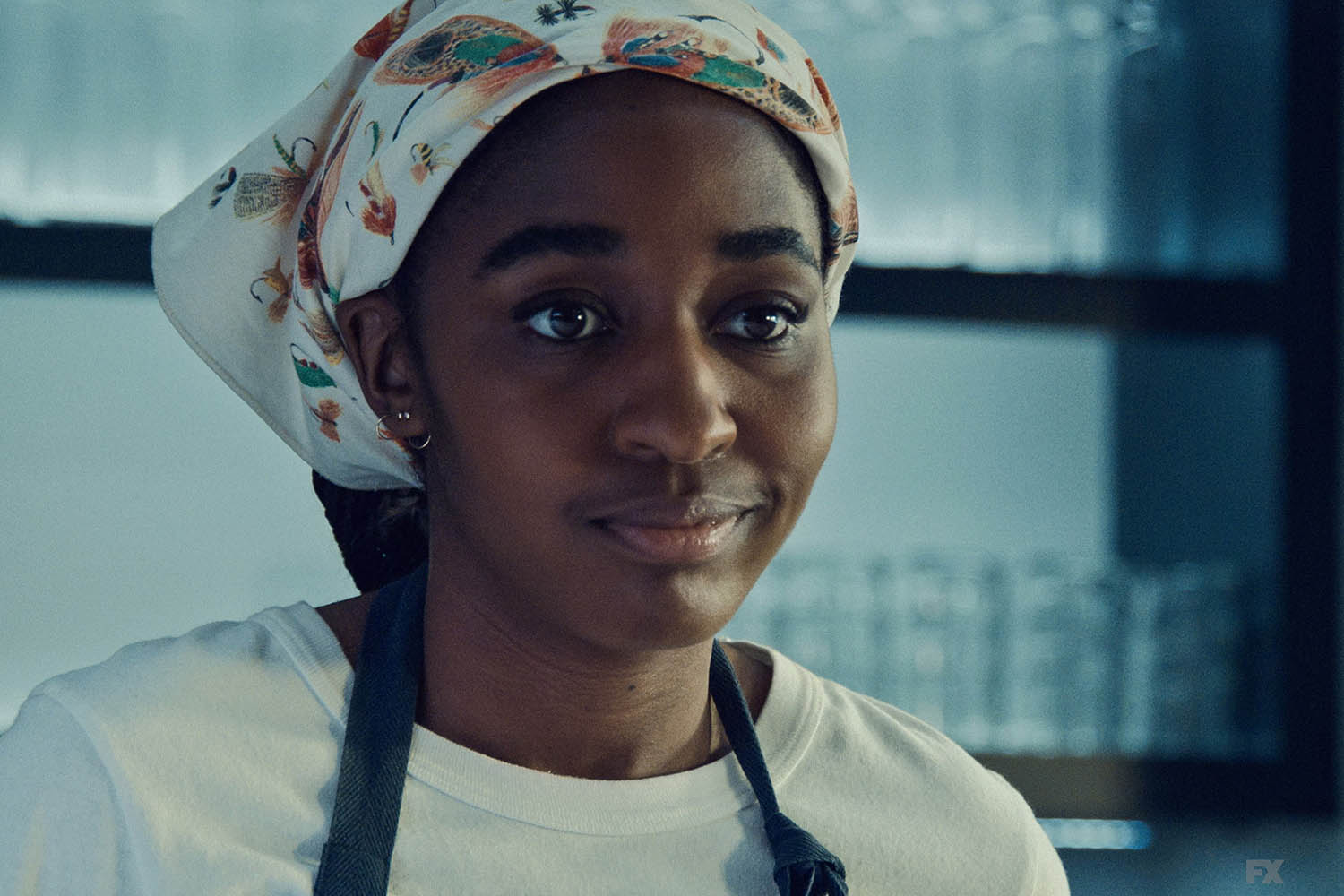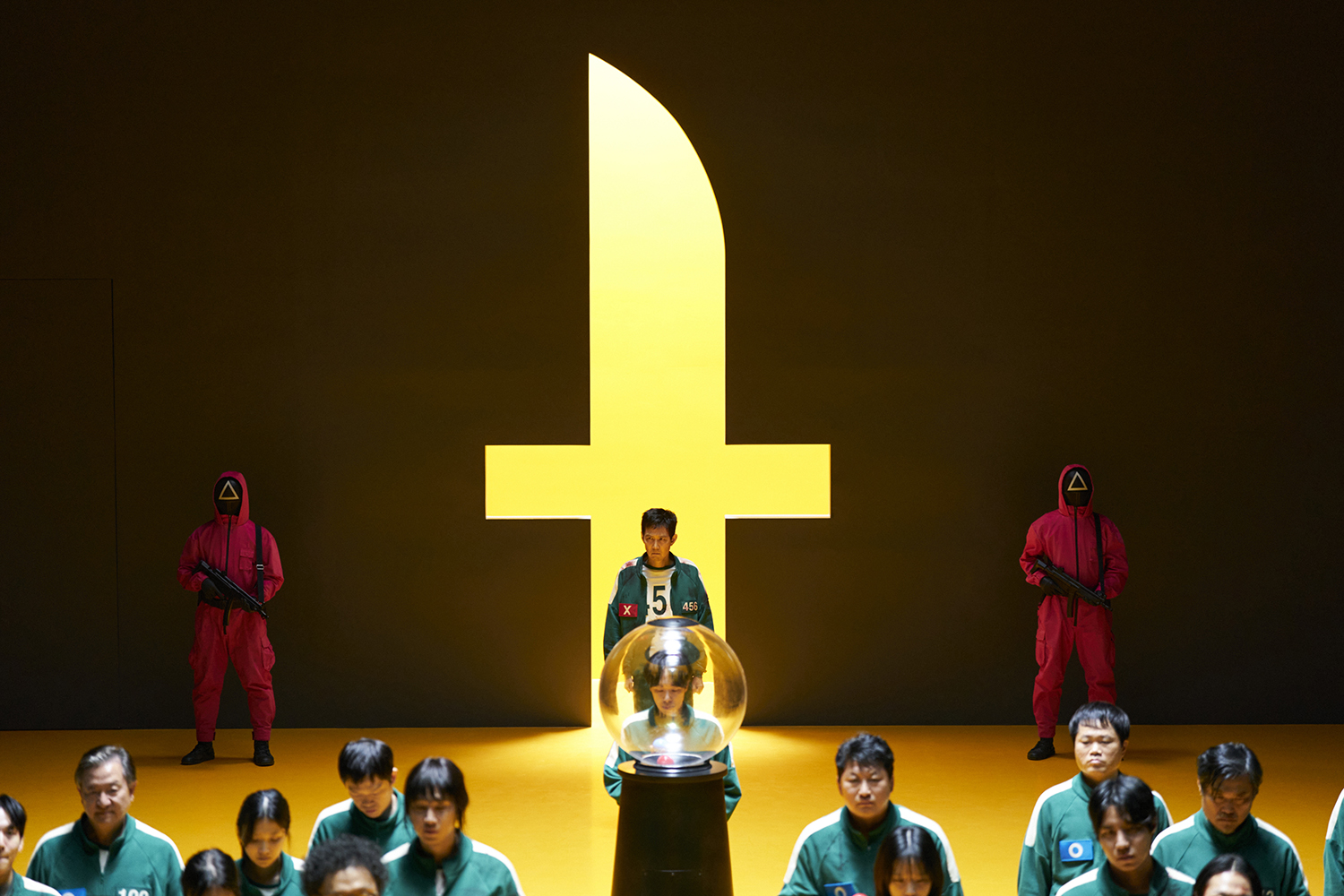With the release of the third and final series, is it time to ask: was Squid Game overhyped? Thumping on to the screens in 2021, as part of the South Korean global cultural wave, Hwang Dong-hyuk’s creation felt original, fresh, transgressive, but also pertinent to the times.
Here was an off-kilter dystopian chiller about the greedy and the desperate travelling to a secluded island to partake in a series of childhood-themed games for a colossal prize (45.6bn won, stuffed into a gigantic Perspex pig). Those who failed were instantly executed by masked, cerise-suited squid guards.
A spectacular debut hit and global phenomenon, pulling in 111 million viewers and counting, it was hailed as a damning treatise on dog-eat-dog capitalism and relished for its candy-hued bloodbaths and nightmarish playground distortions (blankly smiling giant dolls; lethal games of marbles). Squid Game was the crack cocaine of streaming, and viewers like myself were hooked.
Squid 2, however, proved to be a disappointment, retaining all the weaknesses of the first series (threadbare characterisation; puerile plotting), with more besides. As the previous winner, player 456 (Lee Jung-jae), revisited the island to wreak revenge, the signature games, stunning iconography and existential unease were sidelined for squalid nonsense about organ harvesting and hackneyed shootouts.
Thankfully, in the concluding six-part third series, the tedious organ harvesting plotline is barely addressed. New games are imbued with childlike playfulness and deathly menace. And there’s much more of what made the original Squid so terrifying: people infantilised by the system (sprawled on bunk beds in matching tracksuits, as if they were on a school trip), but also so debased they turn on one another – bloodily; viciously – to survive.
The VIPs look like they’re marooned at a sex party where the hot tub has sprung a leak
The VIPs look like they’re marooned at a sex party where the hot tub has sprung a leak
But this series was filmed back to back with the second, and predictably, it carries forward mistakes. The device of a mass vote to end or continue the games was presumably intended to comment on the perils of populism/divisiveness, but it takes an age watching players plod up to vote. Player 456, who started as a charming degenerate everyman, is now so noble and self-sacrificing, he’s – whisper it – irritating. Once again, mysterious “VIPs” observe proceedings, clad in shiny masks and cackling, supposedly representing elitist decadence, but actually looking like they’re marooned at a disastrous sex party where the hot tub has sprung a leak.
Whether or not player 456 ends up vanquishing them, the VIPs increasingly seem symbolic of what may have always been a conceptual fault-line in Squid Game. The premise is predicated on a wealthy elite getting their thrills watching little people scrabble to survive. Isn’t the truth far more tragic – that the rich barely notice the poor and probably wouldn’t even bother to torture them?
Even with multiple late twists, and a surprise last-minute cameo, heavy-handed messaging and the laborious nihilism weighs down this final series. Once again, you’re reminded that Squid Game was originally envisaged as a one-off: it was only its staggering popularity that led to subsequent series. It is perhaps inevitable that its shine has subsequently dulled.

Ayo Edebiri in The Bear
I appreciate why some felt that the previous third series of Christopher Storer’s Chicago-based restaurant drama The Bear verged on slow. There was too much self-indulgent philosophising over the deeper meaning of food. When characters are constantly placing little wisps of lettuce on big white plates with near-biblical solemnity it can drive the most loyal of viewers to reach for the family bag of Doritos in protest.
Saying that, The Bear (Disney+) is a show I continue to love. For its heart – that ongoing whirlwind of ordinary and extraordinary emotion – its meticulous ensemble playing, and for, if you will, its essential ingredient: earthiness, rootedness, all that humour soaked in pain.
Newsletters
Choose the newsletters you want to receive
View more
For information about how The Observer protects your data, read our Privacy Policy
As series four arrives – in 10 (mainly half-hour-ish) episodes – it’s not long before there’s a meditation on food (“Everybody loves restaurants. Even assholes”), but one that is quickly undermined. As angst-ridden chef Carmy (Jeremy Allen White) sinks into another melancholic fugue at the end of a night’s service, Richie (Ebon Moss-Bachrach) – ersatz-cousin and maestro of sarcasm – says drily: “Shall I lock up – or is that going to interrupt your moping?”
Elsewhere, the beats are more familiar. Money troubles. Ayo Edebiri’s Sydney’s pleas for professional recognition. Marcus (Lional Boyce) slogging away at his puddings like a Picasso of sponge. Flashbacks to Mikey (Jon Bernthal), Carmy’s late brother, whose suicide was Year Zero for The Bear. But the mighty Jamie Lee Curtis, playing the matriarch Donna, scorches up every scene she’s in, a narrative blowtorch. And the soft rock soundtrack has improved since the dark days of fearing you were going to have your ears assaulted by the Cars or Mr Mister. Carmy’s romantic anguish and workaholism are also put under the heat lamp (by my calculations, 90% of his dialogue is apologising).
With this series, it’s not so much about where The Bear is going, but who is going with it. A huge character is abruptly taken off the menu. I won’t say who – you’ll have to find out for yourselves.
The nine-part thriller Smoke is created by Dennis Lehane (who wrote the novels Mystic River and Shutter Island), and stars Taron Egerton. They previously collaborated on the brilliant American-gothic thriller Black Bird, also on Apple TV+.
Egerton plays an arson investigator, who is also writing an overheated novel (sample: “Fire doesn’t give a fuck about your wallet, or the size of your gun, or the size of your dick you wish was the size of your gun”). Initially, he and his partner (Jurnee Smollett) seem to hunt down arsonists in a straightforward crime procedural. A little way in, it becomes clear that Smoke is not that show. I can’t say more (my spoiler fire alarm will go off), but you could do worse than brave this psychological inferno of a thriller.
Barbara Ellen’s Watch List
Amol Rajan Goes to the Ganges (BBC One)
An in-depth travelogue, in which presenter/journalist Amol Rajan (below) visits the Hindu festival of Kumbh Mela in a bid to process personal grief.
Transaction (ITV2)
Lively comedy about a charismatic transwoman who causes a stir working in a supermarket. It stars Jordan Gray and Nick Frost.
The Wolves Always Come at Night (BBC Four)
A chance to view the absorbing Storyville docufiction-film about a family living a tough life in the Gobi desert, who must build a new life when their herd is wiped out in a sandstorm.
Photographs by Netflix, The Bear Series 3

